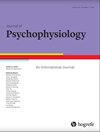Sprint Cycling
IF 0.9
4区 心理学
Q4 NEUROSCIENCES
引用次数: 1
Abstract
Abstract: The time between races varies in the track cycling competition known as the Match Sprint but can be as little as 10–15 min. Both physiological and motivational factors could affect performance recovery. This study investigated how the between-sprint recovery activity, and an alteration in the duration of the second sprint, affected performance. Twenty-four strength-trained men (age: 26 ± 5 years; height: 180.3 ± 6.1 cm; body mass: 82.3 ± 6.9 kg) participated. During each of the four experimental trials, two sprints were performed 12 min apart. The first was always 18 s and the second was either 9 s or 18 s. Between sprints, passive rest or a mixture of active and passive recovery was undertaken. Peak power output (PPO), as well as mean power output over 9 s (MPO9) and 18 s (MPO18), was recorded. Lactate concentration, ratings of sprint preparation and performance, as well as perceptions of recovery, were also measured. Post-trial and post-study questionnaires explored factors that may have influenced performance. A sprint number × recovery method interaction, F(1, 23) = 28.791, p < .001, ηp2 = .556, was found for PPO, with a significantly lower PPO in sprint 2 following passive recovery. Sprint number × second sprint duration interactions were found for PPO, F(1, 23) = 9.867, p = .005, ηp2 = .300, and MPO9, F(1, 23) = 8.922, p = .007, ηp2 = .279. A significant time × condition interaction was also found for lactate concentration, F(6.082, 97.320) = 2.982, p = .010, ηp2 = .157, although post hoc tests were unable to identify the cause of any of these effects. Typically, the participants were satisfied with their sprint performances and expressed positive views about the recovery activity undertaken. The main finding was, therefore, that PPO was lower following passive recovery, but the effects on MPO were not apparent.短跑自行车
摘要:在被称为比赛冲刺的场地自行车比赛中,比赛间隔时间各不相同,但可能只有10-15分钟。生理和动机因素都会影响成绩的恢复。这项研究调查了短跑之间的恢复活动和第二次短跑持续时间的改变如何影响成绩。24名受过力量训练的男性(年龄:26±5岁;身高:180.3±6.1厘米;体重:82.3±6.9公斤)参加了比赛。在四个实验试验中,每一个试验间隔12分钟进行两次短跑。第一个总是18秒,第二个是9秒或18秒。在冲刺之间,进行被动休息或主动和被动的混合恢复。记录峰值功率输出(PPO)以及9 s(MPO9)和18 s(MPO18)的平均功率输出。还测量了乳酸浓度、冲刺准备和表现的评分以及对恢复的感知。试验后和研究后问卷调查探讨了可能影响表现的因素。对于PPO,发现了冲刺数×恢复方法的相互作用,F(1,23)=28.791,p<.001,ηp2=.556,被动恢复后冲刺2中的PPO显著降低。PPO的冲刺次数×秒冲刺持续时间相互作用,F(1,23)=9.867,p=.005,ηp2=.300,MPO9,F(1,23)=8.922,p=.007,ηp2=0.279。乳酸浓度也存在显著的时间×条件相互作用,F(6.082,97.320)=2.982,p=.010,ηp2=.157,尽管事后测试无法确定任何这些影响的原因。通常,参与者对自己的冲刺表现感到满意,并对所进行的恢复活动表达了积极的看法。因此,主要发现是被动恢复后PPO较低,但对MPO的影响并不明显。
本文章由计算机程序翻译,如有差异,请以英文原文为准。
求助全文
约1分钟内获得全文
求助全文
来源期刊

Journal of Psychophysiology
医学-神经科学
CiteScore
2.60
自引率
7.70%
发文量
25
审稿时长
>12 weeks
期刊介绍:
The Journal of Psychophysiology is an international periodical that presents original research in all fields employing psychophysiological measures on human subjects. Contributions are published from psychology, physiology, clinical psychology, psychiatry, neurosciences, and pharmacology. Communications on new psychophysiological methods are presented as well. Space is also allocated for letters to the editor and book reviews. Occasional special issues are devoted to important current issues in psychophysiology.
 求助内容:
求助内容: 应助结果提醒方式:
应助结果提醒方式:


